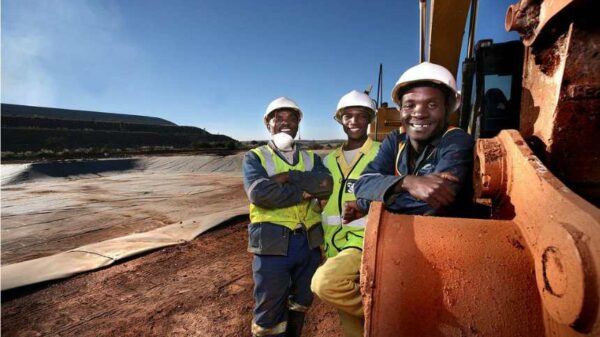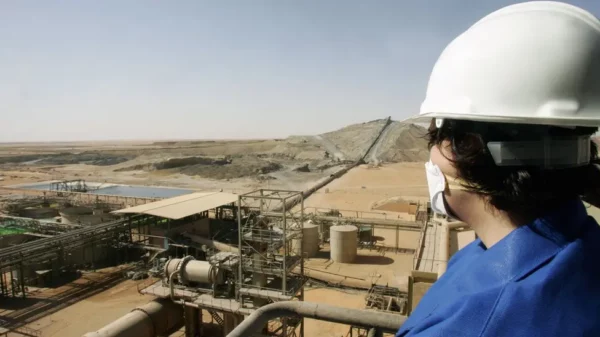B2Gold Corp. (TSE: BTO) (NYSE AMERICAN: BTG) is continuing to operate its Fekola mill in Mali at fully throughput capacity despite the ongoing strike that started late November.
The company said on Monday that it anticipates being towards the lower end of its annual production guidance, which means approximately 420,000 and 450,000 ounces of gold in 2024 due to the strike and ongoing issues with the Government of Mali.
The strike is slated to last for seven days, and the company will continue to operate the mill on a reduced roster. Under Malian legislation employees, strikes are not compulsory and employees that do participate still provide minimum service.
The company attributes the labour action to B2Gold’s disciplinary measures against a small group of Fekola employees who previously engaged in illegal activities that harmed productivity at the Fekola Mine.
These activities included “go slow” actions by mining employees and an illegal sit-in at the Fekola management office in August 2024.
During this time, B2Gold urged all Fekola employees to refrain from participating in the illegal actions. In compliance with Malian law, Fekola’s union agreements, and the B2Gold employee code of conduct, the company initiated disciplinary proceedings against those involved.
B2Gold remains prepared to meet with the Fekola workers’ union to resolve the situation. The company continues to follow legal procedures, respect employee rights, invite the union to engage in constructive dialogue, and provide authorities with all requested information.
Fekola maintains well-documented procedures for addressing grievances and has established engagement platforms with union representatives to discuss employee concerns.
Read more: High grades in Nicaragua expected to raise Calibre Mining’s mineral resource
Read more: Calibre Mining shuffles strength into its board for future growth
Permitting to add 80k to 100k gold ounces annually
Additionally B2Gold said it was making progress with the state of Mali on deliverables and implementation of necessary steps under its memorandum of understanding, originally signed in September 2024. This includes the issuance of permits to start exploration at the Fekola Regional project.
The state of Mali owns approximately 20 per cent of the Fekola mine.
Once the permit for Fekola Regional, located 25 km north of the mine, is issued, operations will commence, with initial gold production expected in early 2025. The company projects this will add approximately 80,000–100,000 ounces of gold annually by trucking open-pit ore to the Fekola mill.
The memorandum with Mali’s new regime outlines terms for expediting approval of the exploitation phase for the Fekola underground project, where the company plans to begin production in mid-2025, following Fekola Regional.
Barrick Gold Corp (TSE: ABX) (NYSE: GOLD) and Resolute Mining Ltd (ASX: RSG) (OTCMKTS: RMGGF) are currently grappling with escalating disputes with the Malian government, primarily over taxation and operational control.
Barrick is contending with claims of nearly USD$500 million in unpaid taxes while negotiating a resolution for its Loulo-Gounkoto mining complex.
The situation has intensified with the detention of Barrick employees, a tactic reportedly aimed at pressuring compliance with Mali’s demands for greater revenue shares under its new mining code. Despite these challenges, Barrick remains committed to a long-term resolution and sustainable partnership with the government.
Resolute Mining recently resolved its own tax dispute by agreeing to a USD$160 million settlement after its CEO and other employees were detained.
These incidents reflect a broader shift in Mali under military rule since 2020, where authorities have increased their focus on extracting greater financial benefits from international mining operations.
.
joseph@mugglehead.com













